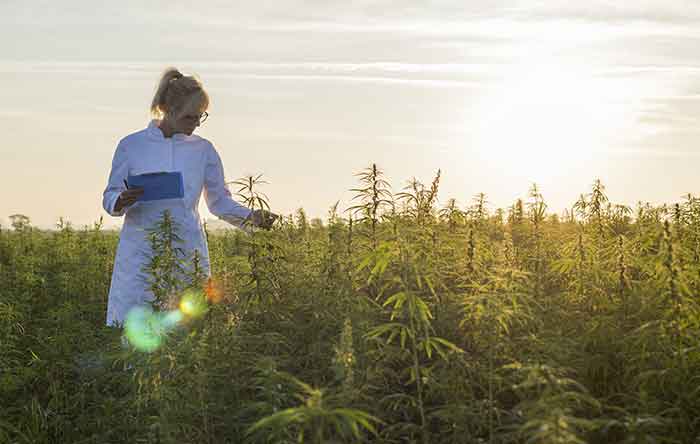
On Tuesday, June 1, Colorado submitted their revised plan for Hemp Management to the U.S. Department of Agriculture (USDA).
Colorado’s plan for managing hemp production aligns with the USDA’s final rule, which was released in mid-January this year. Governor Jared Polis and Commissioner Kate Greenberg officially signed the plan Tuesday, giving their approval.
Colorado Leads The Way
“The revised Hemp Management Plan gives Colorado’s hemp producers a realistic way to expand operations while also ensuring that testing is in place,” Gov. Polis said. “Hemp producers play an important role in Colorado’s economy.”
Since Colorado passed the 64th Amendment in 2012, they have led the country in hemp production and continues to be the leading hemp producer.
In 2019, Colorado reached their peak with 88,745 acres of land licensed for hemp cultivation. But in 2020, oversupply induced a decline for the state’s hemp industry. Although, they still have 36,225 acres of land approved for cultivation.
Colorado’s Hemp Operations and Programs
Currently, the hemp program is operating under the 2014 Farm Bill provisions. The cutoff to switch over to the newest Farm Bill ends in September of 2021. So the newly revised plan is significant for Colorado.
“I’m proud Colorado is home to a strong hemp industry and that our state is the leader in the development of industrial hemp,” Polis said.
The CDA or Colorado Department of Agriculture launched a hemp program in 2014. Since the program’s launch, they have worked to scale up production, launch certified seed programs, and diversify supply chains. Most recently, they have worked on establishing an initiative for a statewide Hemp Center of Excellence.
Revised State Hemp Management Plan
Under the revised Hemp Management Plan, the CDA will require producers to submit annual registration applications. For the application, applicants will need to describe the specifics of production. For example, they will need to include who the owner is, if they will use an indoor or outdoor facility, what seed variety they will use, and the final use of the hemp after production.
The plan also has guidelines for sampling hemp lots. It includes the criteria for how to become a certified hemp sampling agent. Accredited agents will collect samples and deliver them to labs. Then the labs will test the samples’ THC levels. The CDA developed the lab programs, and under the Final Rule, producers cannot harvest hemp before agents collect their samples.
According to the plan, if a sample fails the THC check, producers will have two options. First, they must notify the CDA of which option they choose. Then, producers can either dispose of the crop or remediate it. Remediation means “rendering non-compliant cannabis compliant.”
“Although we are submitting a state plan today that we hope USDA will expeditiously approve, we request that USDA continue to review the Final Hemp Rule with an eye toward making it more flexible and practicable for hemp producers in Colorado and across the country,” Polis said.
Make sure to check back for more cannabis and hemp related news.